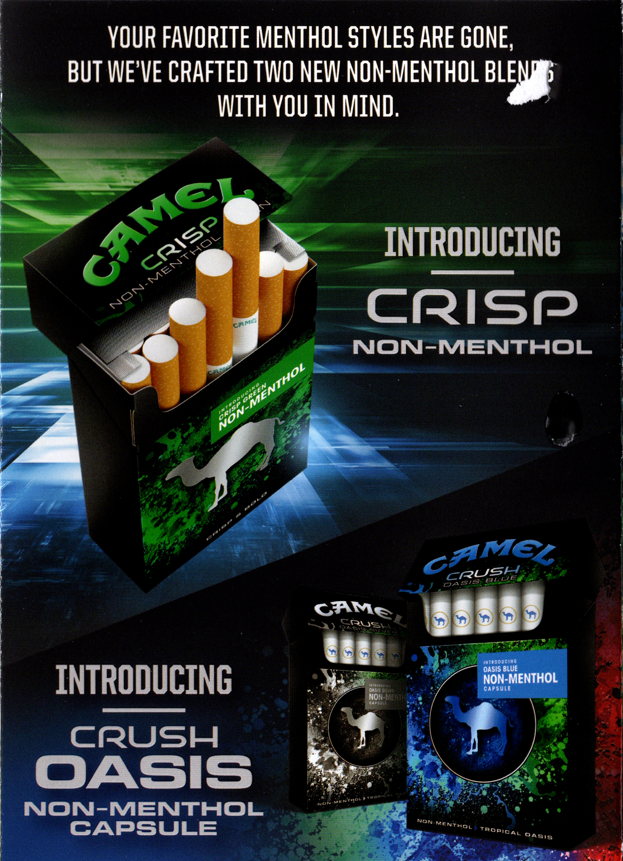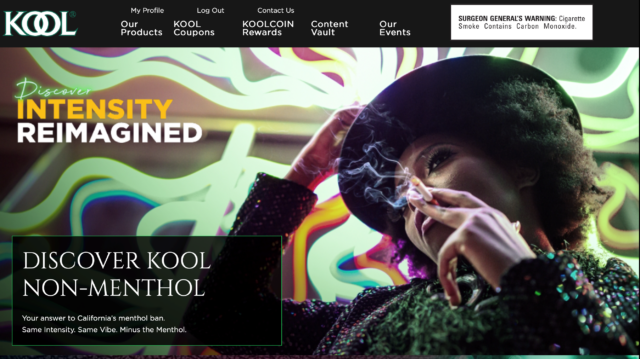Jodie Briggs and Andrew B. Seidenberg
In 2020, California lawmakers achieved a public health victory in passing a law banning the sale of flavoured tobacco products. The law came in response to the toll that menthol plays in smoking initiation, youth use, and the disproportionate impact on Black communities, as well as the high rates of youth use of flavoured e-cigarettes . Despite the sales ban’s potential to save lives, tobacco industry opposition came swiftly and powerfully. Shortly after its passage, tobacco companies successfully fought to delay implementation by spending $21 million to collect signatures to force a public vote on the measure. Fortunately, on November 8, 2022, California residents voted overwhelmingly (63% to 37%) to uphold the flavoured tobacco sales ban. But the industry was undeterred and quickly sought appeals, including a failed attempt to have the Supreme Court prevent the law from taking effect. While spending millions to try to stop the law, tobacco companies simultaneously prepared for its passage by developing new cigarette products to appeal to menthol tobacco users.
Soon after the law was approved, RJ Reynolds Tobacco Company and ITG Brands began marketing new non-menthol variants of their Camel and Kool cigarette brands, respectively. Direct mail advertisements introduced consumers to Camel Crisp and Camel Crush Oasis (Figure 1), messaging that: “Your favorite menthol styles are gone, but we’ve crafted two new non-menthol blends with you in mind.”

Similarly, the Kool website (Figure 2) introduced Kool Filter Kings and Kool Blue (both non-menthol), as “Your answer to California’s menthol ban.”

This industry response in California follows those of other companies around the world debuting new products in response to menthol product sales bans. In the United Kingdom, Imperial introduced menthol and capsule roll-your-own filter tips. In Denmark, British American Tobacco introduced cigarettes with menthol recessed filters. In Canada, flavour cards and drops were introduced to add menthol flavour to non-menthol cigarettes.
At the same time that numerous cigarette manufacturers impede regulations in an effort to protect sales for combustible products, they boast about “harm reduction” in public relations and marketing communications. Yet when faced with an opportunity to support policies that will likely reduce cigarette initiation and promote smoking cessation in California, the tobacco industry spent millions attempting to delay and block the legislation.
The latest actions of the tobacco industry should surprise no one familiar with its long history of deceit, manipulation, and targeting of youth and minority groups. Industry responses to the California flavour product sales ban suggest that flavours, and menthol in particular, are regarded by the industry as important to sustaining tobacco product use. Tobacco companies remain firmly committed to maintaining cigarette sales. In fact, one estimate projected the 2-year delay in implementing the California law would result in an additional estimated $1.1 billion in menthol cigarettes sold. These actions are a reminder to the tobacco control community to remain vigilant against industry manoeuvres. Other jurisdictions and countries considering restrictions on flavoured tobacco product sales should prepare for industry attempts to delay and circumvent these policies.
Jodie Briggs is the Science Editorial Director at the Schroeder Institute at the Truth Initiative in Washington, DC, USA. Andrew B. Seidenberg is the Research Director at the same Schroeder Institute.